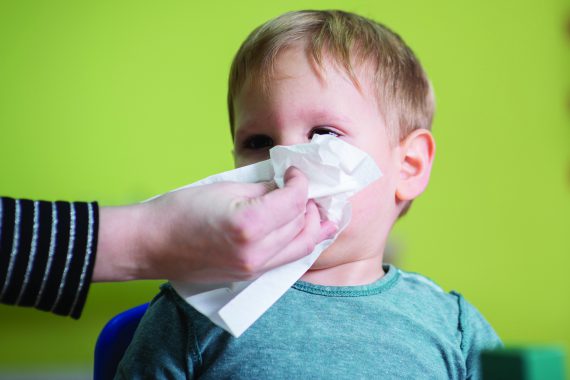GP practices told to order child nasal flu vaccines one week at a time

GP practices have been advised to ‘only order vaccine needed for the forthcoming week and to avoid stockpiling’ following the delays to the flu nasal vaccine supply.
In a notice to the BMA, Public Health England (PHE) told practice staff to not stockpile childhood nasal spray flu vaccines to ensure supply meets demand during this flu season.
It is understood that the delay was caused by the supplier’s routine testing process, but Astra Zeneca said this is not related to the safety or effectiveness of the vaccine.
The notice read: ‘Practice staff are asked to only order vaccine needed for the forthcoming week, even if this is below the maximum quota and to avoid stockpiling. Close adherence to the vaccine storage in the cold chain is essential to avoid vaccine wastage.’
PHE told Pulse that GPs should prioritise at-risk children aged between two and 18 within their surgeries so that ‘the amount of stock available for order’ can be managed ‘accordingly’.
A spokesperson said: ‘A number of batches that were due to arrive in November are delayed, which means that PHE has been closely monitoring how the vaccination programme is delivered. The delay in those batches will most likely be a number of weeks but this does not mean that there will be no supply over that same period. A significant amount of stock has already been distributed, and PHE is continuing to receive deliveries into early November which are being made available to order by the NHS.
‘GPs can currently order a large proportion of the vaccine they would expect to need this season, however we have asked them to only order one week at a time. Practices get deliveries every week so there is no need to order up front.’
They added: ‘Controls are in place every year to ensure that supply is mapped against demand throughout the entire season. The vaccine has a very short shelf life and so is delivered to PHE in phased deliveries into December. GPs have been asked to prioritise at-risk children aged 2-18 within their surgeries and the amount of stock available for order will be managed accordingly.’
BMA GP committee executive team member Dr Krishna Kasaraneni said: ‘This is very frustrating for GPs and their patients, but we advise teams to continue to follow the flu programme as outlined in the Directed Enhanced Service Specification, and for practice staff to order only the vaccines they need, one week at a time.
‘The flu virus can be particularly harmful for vulnerable patient groups such as young children, so it’s vital that any delays in the supply chain continue to be closely monitored, and any issues are resolved to ensure as many people as possible are protected.’
PHE has recommended practices to deliver the childhood vaccination programme as followed:
- Children in high-risk groups aged six months to two years – these children should be called and offered quadrivalent inactivated influenza vaccine (QIVe);
- Children in high-risk groups from two to 18 years should be prioritised and offered LAIV (live attenuated influenza vaccine) unless contraindicated.
- Those aged two-three years and age 11-18 years should be called in and offered LAIV or a suitable quadrivalent influenza vaccine (QIV) o those of primary school age (four to 10 years) will be invited through schools, but should be vaccinated with LAIV or QIV if they choose to present in general practice. Where a practice does not have LAIV available, vaccination of children in high-risk groups should not be delayed and a suitable QIV should be offered as an alternative.
- Healthy children aged two to three years should be called and offered LAIV as the practice receives stock. Two-year-olds who are receiving vaccine for the first season are a higher priority than three-year-olds.
In September, supplier Sanofi Pasteur announced that deliveries of quadrivalent flu vaccines for 18 to 64-year-olds will be between one and two weeks late due to an unexpected delay in manufacturing.
Earlier this month, it was announced that flu vaccinations will be extended to all primary school-aged children in England this flu season, with all given the nasal sprays unless they have a medical condition that means they require the injectable version.
Meanwhile, NHS Digital recently revealed that it expects only 40% of practices to have the right IT systems this autumn to receive flu vaccination data electronically from community pharmacies.
Visit Pulse Reference for details on 140 symptoms, including easily searchable symptoms and categories, offering you a free platform to check symptoms and receive potential diagnoses during consultations.









